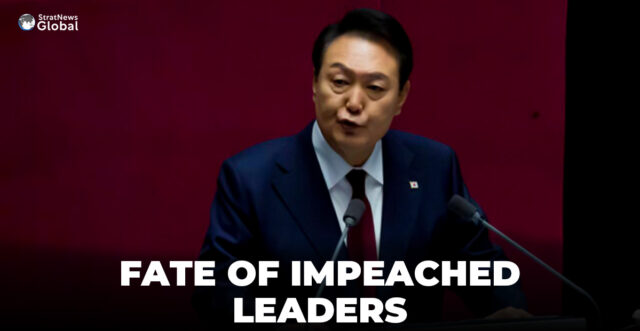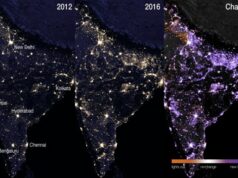The fates of impeached South Korean leaders, President Yoon Suk Yeol and Prime Minister Han Duck-soo, will be decided in the Constitutional Court, reports said.
South Korea is currently undergoing a political and leadership crisis as both aforementioned people have also been suspended from power over a short-lived martial law.
Han, who was impeached last month, had taken over as acting president from Yoon, impeached on December 14. Finance Minister Choi Sang-mok is currently the acting president.
On Tuesday, the court is due to hear first arguments in a case to decide whether to reinstate Yoon or remove him permanently from power, although the session may adjourn early if Yoon does not attend.
After being impeached, Yoon’s presidential powers have been suspended but he remains in office, retaining his immunity from most charges except insurrection or treason.
The Constitutional Court must decide within 180 days whether to remove him from office or reject the impeachment and restore his powers. If it removes Yoon or he resigns, a presidential election must be held within 60 days.
Opposition Democratic Party lawmaker Jung Chung-rae, the head of parliament’s Legislation and Judiciary Committee, is leading the case for removing Yoon.
Yoon’s legal counsel include former Constitutional Court spokesperson Bae Bo-yoon and former prosecutor Yoon Kab-keun.
The court also began proceedings on Monday in the trial on whether to remove Han from office or restore him to his role.
Hurdles To A Court Ruling?
South Korea’s constitution requires six justices to agree on the ouster of an impeached president. The nine-member court has one remaining vacancy, after Choi appointed two new justices last month.
Choi has said that he will fill the last remaining vacancy if the ruling and opposition parties can agree on the nomination. But with eight out of nine justices’ seats filled, the court is not expected to have any procedural hurdles in ruling on Yoon’s fate.
What Happens In Court?
In South Korea’s only previous presidential removal by impeachment, the court took three months to oust Park in 2017.
This time, the terms of two court justices expire in April, and legal experts predict it may seek to rule before that to minimise uncertainty.
Justice Cheong Hyung-sik of the Constitutional Court said last month it would move swiftly in the case, considering its gravity.
As part of the push to speed up proceedings, the court has already set times of some future sessions to twice a week, including one on Thursday.
In the past, academics say, the justices have not voted predictably by political leaning but have decided case by case, going by their interpretation of the constitution.
Attempts by conservatives to rally popular support for Yoon are not expected to affect the court’s ruling, as Park was removed from office despite continued rallies to keep her in power, warring with candlelight protests seeking her removal.
In the case of Park, who like Yoon was from a centre-right party, the court voted unanimously to remove her, including some justices viewed as conservative and two Park appointees.
Yoon also faces criminal investigations related to the martial law decision.
Seok Dong-hyeon, a lawyer advising Yoon, said on Monday that Yoon’s lawyers have asked investigating authorities to suspend the execution of an arrest warrant against Yoon so he can participate in trial proceedings at the Constitutional Court.
In 2004, then-President Roh Moo-hyun, from a centre-left party, was impeached for falling short of the political neutrality required of a high public official, but finished his five-year term after the court rejected the motion within two months.
(With inputs from Reuters)





